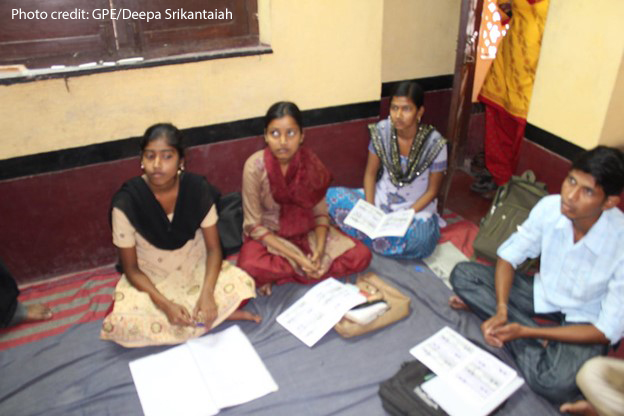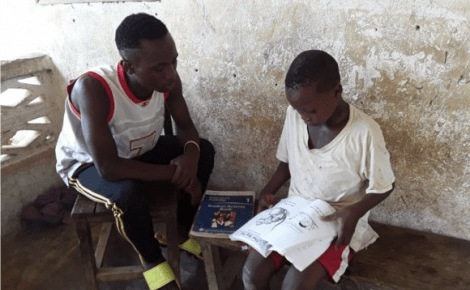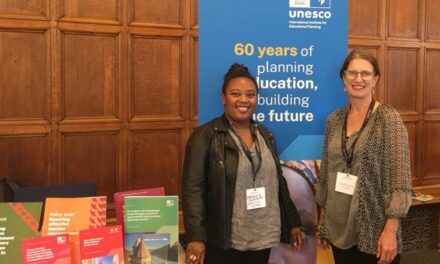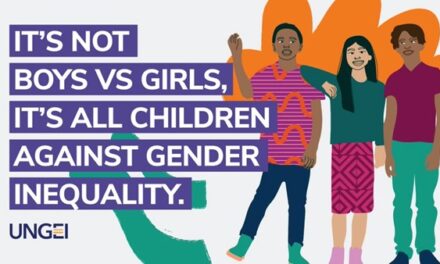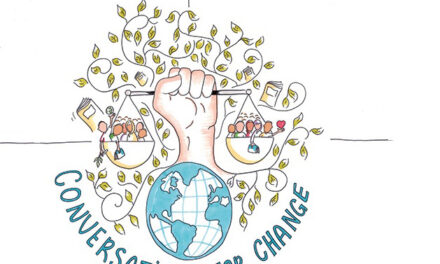This blog was written by Shreyan Acharya, Himanshu Gupta and Kadambari Lohiya, Project Voices team at the Directorate of Education, Government of NCT of Delhi, India.
Project Voices (2022-23) is an endeavour to create spaces in 1,000+ government-run schools for children to practice verbal communication with options in Hindi or English through different public-speaking activities. The project, initiated by the Directorate of Education in Delhi, strives to enhance children’s communication skills and completed the first cycle in early 2023. The objective of the project is to build platforms for children in schools to be able to articulate their thoughts in words. The initiative comprises unique features that bring an intersection of the right to free speech and expression with the right to education. The vision is an unprecedented step that formalises optional extra-curricular activities into an inextricable part of the daily culture in schools with academic studies.
Key features of Project Voices
The project contains a cycle of different activities ranging from intra-school to inter-schools. Three phases were designed to complete the full cycle of the project. Phase I consisted of conducting intra-school activities, operational across the academic year. The objective of Phase I is primarily to incorporate a culture of public speaking in government schools. Phase II and III comprise inter-school competitions at different levels in Delhi. The three elements for the functioning of Project Voices in Delhi Government Schools can be identified as Compliance, Participation and Educational Leadership.
- Compliance: Intra-school events are the most vital component of Project Voices. Compliance in fulfilling the essence of the project is of utmost importance. Teachers and heads of schools demonstrate a commitment to delivering quality education. Their role has been crucial to redefine school leadership by complying with the guidelines framed by the Directorate to uphold the constructiveness of the project. The collectiveness to ensure the success of a unique approach enthused new hope in the public education system.
- Participation: The purpose of conducting the activities has not been to furnish the skills of the selected “few”. But the project opened the doors to every child in schools, to participate freely without any concern of failing – with the aim to remove fear and inhibition. Schools organised different weekly activities to establish regular spaces for public speaking. Encouraging open participation enabled children to exercise their right to free speech.
- Educational leadership provided the commitment to ensuring the right to quality education. A Spoken English Cell of the Directorate of Education in Delhi showcased an unwavering dedication to upholding children’s right to education by upskilling overall personality growth, talent and abilities. The administration performed a distinctive collaborative role by supporting the schools with direct engagements. Designing clear guidelines with monitoring mechanisms further provided clear checks and balances.
The outcome of Project Voices
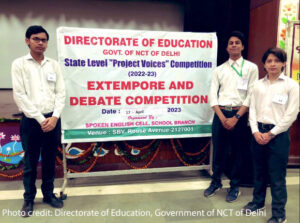 Participation: The mechanism to collect data from schools aims to capture the number of children participating. In the first cycle, hundreds of thousands of children participated in different activities under Project Voices. This large number demonstrates the necessity to embrace unique approaches to providing quality education, especially in government-run schools. The large number indicated the willingness of the children and teachers in participating in initiatives that aim for the holistic development of every child. Such an endeavour is an attempt to bring government schools, often considered under-resourced, at par with other well-resourced schools where education is redefined entirely.
Participation: The mechanism to collect data from schools aims to capture the number of children participating. In the first cycle, hundreds of thousands of children participated in different activities under Project Voices. This large number demonstrates the necessity to embrace unique approaches to providing quality education, especially in government-run schools. The large number indicated the willingness of the children and teachers in participating in initiatives that aim for the holistic development of every child. Such an endeavour is an attempt to bring government schools, often considered under-resourced, at par with other well-resourced schools where education is redefined entirely.
Personality development and confidence building: Many children and teachers testified during the inter-school events. The collective analysis of the responses from children provided certain insights, including that these initiatives instilled a sense of confidence in children. They also emphasised that earlier, they were afraid in presenting their thoughts or feared speaking in front of others, but through Project Voices, they were able to practice public speaking with the support and motivation received from schools. As one student said, “My participation in Project Voices made me more confident”. They specifically highlighted the role of teachers in encouraging them to participate without the fear of failure. Such a practice delivers an important lesson that states “Participation is more important than winning”.
Positive behavioural change: Teachers also admired the steps taken. They expressed a mutual feeling of accomplishing together and witnessed an optimistic transformation in the participating children. They affirmed that such an initiative has helped students in overcoming their reluctance and shyness. It is positively impacting their personality development and academic learning through better sentence formation, vocabulary building, grammar usage, etc. It was a collective belief from the teachers that initiatives like these have a direct impact on the lives of the children, especially those who come from different socio-economic conditions. Interestingly, one of the teachers highlighted the ripple effect where non-participating students also felt encouraged by their peers to participate in the activities.

